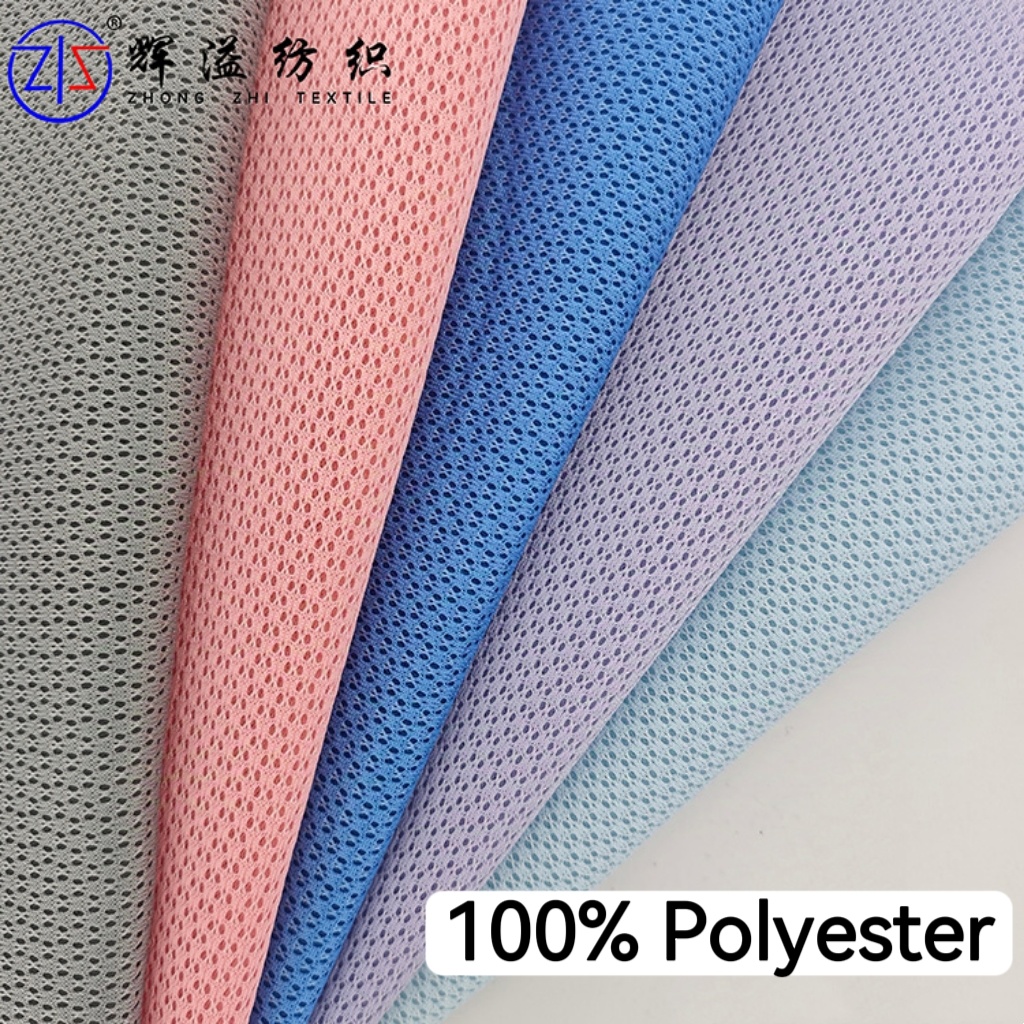Is 100% Polyester Mesh Eco-Friendly?
2025-08-20
As sustainability becomes a key focus in the global footwear and textile industries, the environmental impact of materials such as 100% polyester mesh has drawn increasing attention. Widely used in shoes, apparel, bags, and home products, polyester mesh is valued for its strength, durability, and versatility. But how eco-friendly is it really? Let’s explore this question from multiple angles.

1. Material Characteristics and Recycling Potential
Polyester is a thermoplastic polymer, meaning it can be melted and reprocessed multiple times without significant loss of quality. This property gives 100% polyester mesh a distinct environmental advantage:
Recyclability: Pure polyester mesh (without blends with cotton, nylon, or spandex) is easier to recycle, either mechanically or chemically. It can be transformed into new fibers, fabrics, or even non-textile products such as packaging materials.
Closed-loop potential: The concept of “fiber-to-fiber recycling” is gaining momentum, where old polyester fabrics are chemically broken down into monomers and then spun back into virgin-quality fibers, significantly reducing reliance on virgin petroleum.
2. Environmental Advantages in Use
Durability: Polyester mesh is strong, abrasion-resistant, and long-lasting, which means products made from it require less frequent replacement. This durability reduces waste over time.
Moisture management: Its quick-drying and easy-care properties mean less energy is consumed in laundering, compared to cotton fabrics that require more water and longer drying times.
Lightweight structure: Especially in footwear, polyester mesh helps create lighter products, reducing raw material use and improving transportation efficiency.
3. Challenges and Environmental Concerns
While polyester mesh offers many benefits, there are also environmental drawbacks:
Non-biodegradability: Polyester is not naturally biodegradable, and products can take decades—or even centuries—to break down in landfills.
Microfiber shedding: During washing, small fibers can be released into water systems, contributing to microplastic pollution. This is a significant global environmental concern.
Fossil fuel dependency: Virgin polyester production relies heavily on petroleum, which raises questions about long-term sustainability and carbon footprint.
4. Industry Shifts Toward Sustainable Solutions
To address these challenges, the textile and footwear industries are embracing innovative approaches:
Recycled Polyester (rPET): By repurposing post-consumer plastic bottles and old polyester products, rPET reduces waste, lowers greenhouse gas emissions, and consumes less energy compared to virgin polyester production.
Eco-friendly dyeing and finishing: Traditional dyeing is resource-intensive. New methods such as solution dyeing and waterless dyeing are being adopted to minimize water and chemical use in polyester mesh production.
Blended sustainability models: Some companies are combining recycled polyester mesh with bio-based fibers to enhance eco-performance while maintaining durability.
5. Future Outlook: Towards Circular Materials
The eco-friendliness of 100% polyester mesh is not absolute—it depends on how the industry and consumers handle its life cycle. Increasing investments in textile recycling technologies, green chemistry, and circular supply chains are paving the way for polyester mesh to play a more responsible role in sustainable fashion and footwear.
For footwear, this means uppers, linings, and insoles made with recycled polyester mesh can achieve both high performance and reduced environmental impact.
For manufacturers, transparency in material sourcing and recycling initiatives will become an important factor in meeting global sustainability standards.
Conclusion
100% polyester mesh is not biodegradable, but it is highly recyclable, durable, and resource-efficient in use. Its eco-friendliness largely depends on whether the material is recycled and how the industry manages waste. With the growing adoption of recycled polyester (rPET) and eco-friendly production technologies, polyester mesh is evolving into a more sustainable choice, especially for the footwear sector, where breathability, lightweight structure, and durability are key.
RELATED INFORMATION






